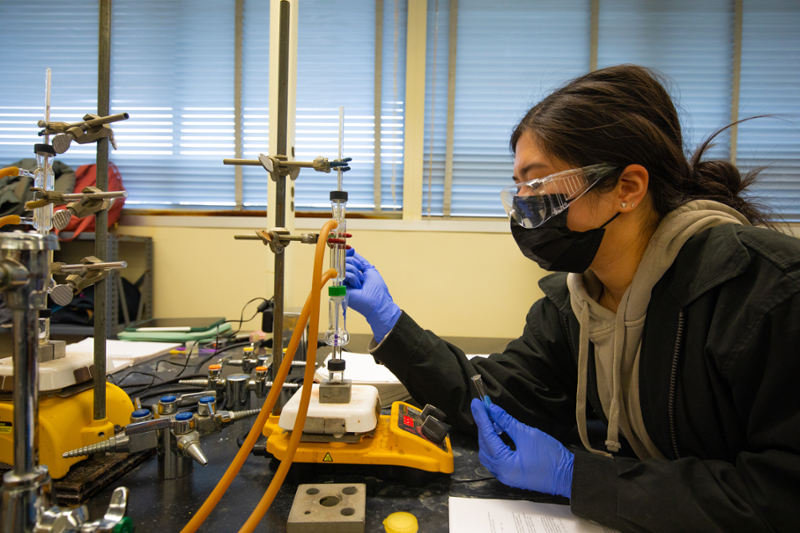
Gain the competitive edge for applying to health professional schools. Designed with the flexibility that working adults require, Cal State East Bay’s Pre-Professional Health Academic Program equips you with the knowledge to make your application stand out and paves the way to an exciting and rewarding career in the healthcare field.
Interested in a healthcare or biomedical career, but don't have a science degree or the desired GPA for applying to Health Professional Schools?
Cal State East Bay’s Pre-Professional Health Academic Program (PHAP) is specifically designed to provide you with the competitive advantage to enter into health professional schools and, ultimately, a career in the health care industry.
Whether you’re interested in a career change or already have an educational background in science but would like to enhance your GPA, the PHAP has a track for you.

Individualized advising, mentoring, tutoring through each step of the way
The Princeton Review® MCAT prep course at a highly subsidized rate
Personal statement/application workshops
Committee letter of recommendation or letter packet (students must meet minimum requirements)
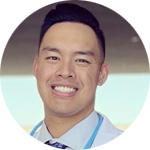
PHAP helped me improve my academic resume; allowed me to balance two clinical-oriented jobs, volunteering, and extracurricular activities; and guided me through the rigorous application process. I wouldn’t be where I am today without the lasting connections and friendships I’ve made in this program!
Jean-Paul Orogo PHAP 2018-19With a PHAP Certificate from an accredited university, you’ll quickly be on your way to an exciting and rewarding career in the health profession.
Do you desire a career that is challenging, engaging, and satisfying? Cal State East Bay’s Pre-Professional Health Academic Program is strategically designed to provide the competitive advantage needed to enter a health professional school and launch a rewarding career in medicine, optometry, dentistry, veterinary medicine, physical therapy, and other healthcare fields.

Launch a rewarding career in a variety of healthcare fields.
Physicians and surgeons are among the highest of all occupations, with a median wage equal to or greater than $239,200 per year.
—U.S. Bureau of Labor Statistics
Performing well in a premedical post-baccalaureate program demonstrates successful completion of premedical requirements, as well as a continued commitment to your goal of a career in medicine.
—Association of American Medical Colleges
Employment of healthcare occupations is projected to grow much faster than the average for all occupations from 2022 to 2032 , adding about 1.8 million new jobs.
—U.S. Bureau of Labor Statistics
Health professional schools today are admitting more post-baccalaureate students than ever before. As a student in Cal State East Bay’s PHAP, you’ll receive the intensive training and preparation needed to succeed in those schools and foster a career in the health profession of your choice.
Join the growing list of Cal State East Bay graduates who are admitted into medical schools across the nation each year by showing promise in scholarship, competitive entrance test scores, quality experience in health/medical settings, and excellent personal characteristics that include maturity, leadership, self-discipline, compassion, and empathy.
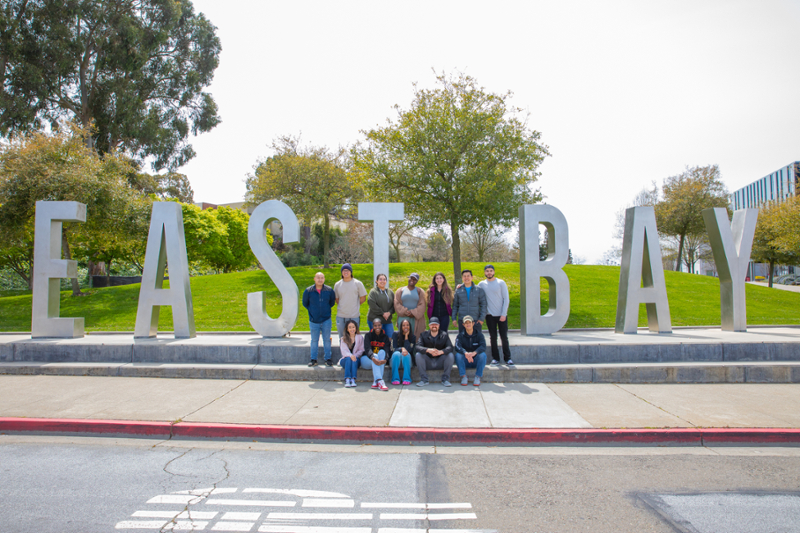

PHAP indeed helps with the tangible things like GPA and apps, but what I love most is its ability to make students believe that their dreams are still attainable – and that’s largely achieved through their faculty, staff, & students. PHAP taught me to believe again in my capacity as a student, leader, & future physician.
Irina Adao PHAP 2018-19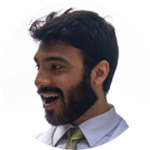
I needed someone to recognize that I was more than a score. These professors generously offered their time to know me on a personal level. Their immense support, guidance, and approbation gave me the confidence to relentlessly pursue my goals.
Anosh Kermani PHAP 2019-20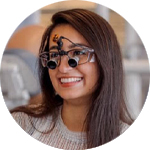
PHAP gave me a second chance to prove myself to dental schools. After completing 5 semesters with a 4.0, I refined my study habits and grew confident within myself and my academic abilities. PHAP wasn't just a program – it was a family and I couldn't have gotten into dental school without them!
Fareen Baloch PHAP 2019-20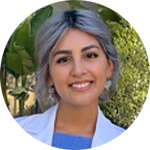
I always knew I wanted a career in medicine, but as a first generation student, navigating academics and the application process was challenging. Through PHAP I found the community and the guidance that prepared me for this next chapter of my career.
Giselle Castorena Perez PHAP 2018-20By successfully completing this program, you will:
Gain necessary experience in various health settings.
Prepare for national entrance exams such as the MCAT, DAT, GRE, and OAT.
Have opportunities to engage in basic or clinical research and participate in community service.
Receive mentoring and tutoring that prepare you for the health professional school application process.
Develop personal characteristics and acquire skill-based professional training for career advancement.
Cal State East Bay’s Pre-Professional Health Academic Program is designed to fit the needs of both non-science and science majors. As a student in the program, you’ll enjoy a goal-oriented curriculum that includes health profession volunteerships/internships, research experience, community service, and pre-health association opportunities.
The program is designed for students who can take classes full-time, with at least three to four classes per semester. However, with classes being offered at the Hayward and Concord campuses and the Oakland Center with convenient class times, including some evening courses, you can easily fit classes into your busy schedule.
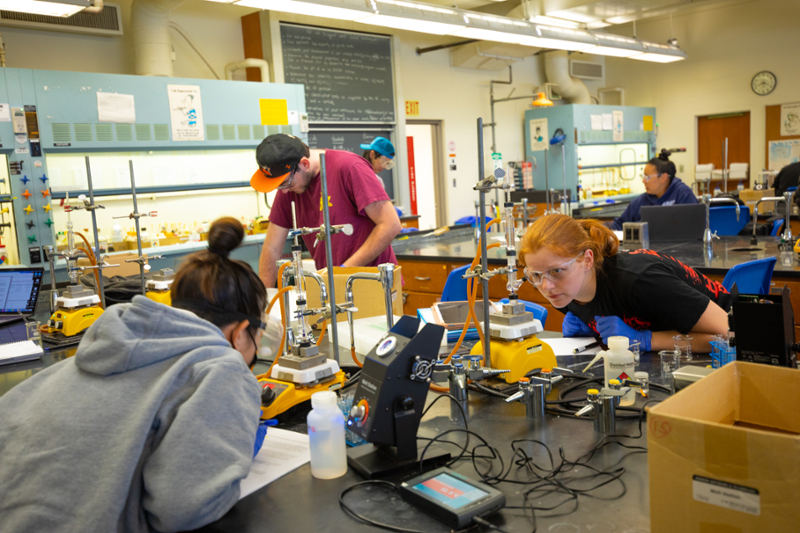
The program includes two different tracks, depending on your academic background:
Track I: Career ChangerApproximately 2 full years, or 4 semesters. Choose this track if you have a non-science degree.
Track II: Academic EnhancerApproximately 1 full year, or 2 semesters. Choose this track if you already hold a biological sciences or biochemistry degree.
Requirement: 68-90 units (starts fall semester only)
To finish the Career Changer track, you must complete:
Foundation Science Courses (47-59 units):
| Biology Courses |
|---|
| BIOL 140A - Cell and Molecular Biology (5 units) |
| BIOL 140B - Organismal Biology (5 units) |
| Physics Courses |
|---|
| PHYS 125 - Principles of Physics I (4 units) |
| PHYS 126 - Principles of Physics II (4 units) |
| Chemistry Courses |
|---|
| CHEM 111 - General Chemistry I (5 units) |
| CHEM 112 - General Chemistry II (5 units) |
| CHEM 331 - Organic Chemistry I (5 units) |
| CHEM 332 - Organic Chemistry II (5 units) |
| Mathematics Courses |
|---|
| MATH 130 - Calculus I (4 units) |
| Psychology Courses |
|---|
| PSYC 100 - General Psychology (3 units) |
| PSYC 330 - Cognitive Psychology (4 units) |
| Statistics Courses |
|---|
| STAT 303A - Biostatistics for Health Sciences (3 units) |
| Health Science Courses |
|---|
| HSC 130 - Health Humanities (3 units) |
| HSC 405 – Toxicology (3 units) |
| Seminar Courses |
|---|
| BIOL 408 – Biomedical Sciences Seminar (2 units) |
Elective Lower and Upper Division Courses (21-31 units):
| Select from the following: |
|---|
| BIOL 270 - Human Anatomy and Physiology I (4 units) |
| BIOL 271 - Human Anatomy and Physiology II (4 units) |
| BIOL 310 - Genetic Analysis I (4 units) |
| BIOL 330 - General Microbiology (5 units) |
| BIOL 410 - Genetic Analysis II (3 units) |
| BIOL 426 - Advanced Molecular and Cell Biology (3 units) |
| BIOL 434 - Molecular Microbiology (3 units) |
| BIOL 440 - Molecular Virology (3 units) |
| BIOL 441 - Parasitology (3 units) |
| BIOL 442 - Epidemiology (3 units) |
| BIOL 444 - Medical Entomology (3 units) |
| BIOL 445 - Immunology (3 units) |
| BIOL 470 - Animal Senses (4 units) |
| BIOL 471 - Neurobiology (3 units) |
| BIOL 473 - Comparative Physiology (3 units) |
| BIOL 474 - Biomedical Physiology (3 units) |
| BIOL 476 - General Endocrinology (3 units) |
| BIOL 488 - Environmental Physiology (3 units) |
| CHEM 441 - Biochemistry I (4 units) |
| CHEM 442 - Biochemistry II (4 units) |
| CHEM 445 - Protein Structure (3 units) |
| CHEM 446 - Nucleic Acid Chemistry (3 units) |
| CHEM 447 - Major Organ Biochemistry (3 units) |
| CHEM 490 - Independent Study (1-4 units) |
| HSC 315 - Public Health (3 units) |
| HSC 355 - Bioethics (3 units) |
| MATH 131 - Calculus II (4 units) |
Requirement: 34-40 units (starts fall and spring semesters)
To complete the Academic Enhancer track, you must complete 34-40 units to be selected from the following list of courses:
Elective Lower and Upper Division Courses (34-40 units):
| Biology Courses |
|---|
| BIOL 270 - Human Anatomy and Physiology I (4 units) |
| BIOL 271 - Human Anatomy and Physiology II (4 units) |
| BIOL 310 - Genetic Analysis I (4 units) |
| BIOL 330 - General Microbiology (5 units) |
| BIOL 410 - Genetic Analysis II (3 units) |
| BIOL 424 Bioinformatics (3) |
| BIOL 426 - Advanced Molecular and Cell Biology (3 units) |
| BIOL 430 Microbial Physiology and Metabolism (3) |
| BIOL 432 Microbe-Host Interactions (3) |
| BIOL 434 - Molecular Microbiology (3 units) |
| BIOL 440 - Molecular Virology (3 units) |
| BIOL 441 - Parasitology (3 units) |
| BIOL 442 - Epidemiology (3 units) |
| BIOL 444 - Medical Entomology (3 units) |
| BIOL 445 - Immunology (3 units) |
| BIOL 470 - Animal Senses (4 units) |
| BIOL 471 - Neurobiology (3 units) |
| BIOL 473 - Comparative Physiology (3 units) |
| BIOL 474 - Biomedical Physiology (3 units) |
| BIOL 476 - General Endocrinology (3 units) |
| BIOL 488 - Environmental Physiology (3 units) |
| Physics Courses |
|---|
| BIOL 125A – Principles of Physics I (1 unit) |
| BIOL 126A – Principles of Physics II (1 unit) |
| PHYS 303 - Biophysics (3 units) |
| Chemistry Courses |
|---|
| CHEM 111 - General Chemistry I (5 units) |
| CHEM 112 - General Chemistry II (5 units) |
| CHEM 331 - Organic Chemistry I (5 units) |
| CHEM 332 - Organic Chemistry II (5 units) |
| CHEM 441 - Biochemistry I (4 units) |
| CHEM 442 - Biochemistry II (4 units) |
| CHEM 445 - Protein Structure (3 units) |
| CHEM 446 - Nucleic Acid Chemistry (3 units) |
| CHEM 447 - Major Organ Biochemistry (3 units) |
| Mathematics Courses |
|---|
| MATH 130 - Calculus I (4 units) |
| MATH 131 - Calculus II (4 units) |
| Psychology Courses |
|---|
| PSYC 100 - General Psychology (3 units) |
| PSYC 330 - Cognitive Psychology (4 units) |
| Statistics Courses |
|---|
| STAT 303A - Biostatistics for Health Sciences (3 units) |
| English Courses |
|---|
| ENGL 100 College Writing: Stretch I (3) |
| ENGL 101 College Writing: Stretch II (3) |
| ENGL 200 College Writing II (3) |
| Health Science Courses |
|---|
| HSC 130 - Health Humanities (3 units) |
| HSC 315 - Public Health (3 units) |
| HSC 355 - Bioethics (3 units) |
| HSC 405 - Toxicology (3 units) |
| Seminar Courses |
|---|
| BIOL 408 – Biomedical Sciences Seminar (2 units) |
| Independent Study |
|---|
| BIOL 490 – Independent Study (1-4 units) |
| CHEM 490 Independent Study (1-4 units) |
Please note: Students with biomedical undergraduate degrees (like biology, biochemistry, etc.) must complete a minimum of 10 upper division courses (or one full year) as post-baccalaureates to qualify for certification.
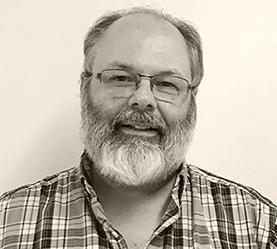
Dr. Kenneth Curr is an associate professor in CSUEB’s Department of Biological Sciences. Dr. Curr's research is based on three areas of study, molecular virology (GB Virus Type C/HIV-1), marine invertebrate immunology and population genetics (the nudibranch Tritonia tetraquetra) and finally,heavy metal bioremediation using cyanobacteria (Spirulina plantensis/maximus).
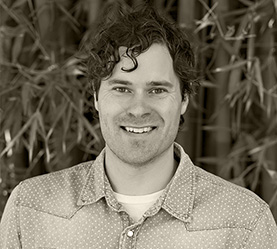
Dr. Tyler Evans is an assistant professor in CSUEB’s Department of Biological Sciences with a focus on environmental physiology, genomics, and climate change. His lab, The Evans Lab at California State University, East Bay, is interested in how shifts in abiotic variables affect the performance of marine organisms, particularly within the scope of global climate change. His work strives to characterize responses to the environment across levels of biological organization and elucidate differences that exist between populations or species in their capacity to respond to environmental change. Ultimately, this information is useful in developing predictions as to how organisms will fare in future environments.
Dr. Evans has a PhD in Biology from the University of Saskatchewan (Canada).
For more information about his research, please visit his website.
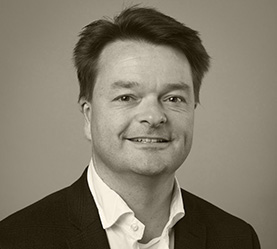
Dr. Erik Helgren is the chair for CSUEB’s Department of Physics as well as an associate professor with a focus on transport properties of renewable energy materials. He also is the co-director of the Social Impact Solar (SIS) program, i.e., the Solar Suitcase Program since 2015, where students learn basic STEM concepts associated with solar technology as well as the social justice and environmental justice implications that solar technology can have on society. Students in the class assemble a working off-grid solar energy system, i.e., the Solar Suitcase, developed by our partner non-profit We Share Solar.
Dr. Helgren was awarded the George and Miriam Phillips Outstanding Professor Award for the 2018-2019 academic year and has served on the board of directors for the CSUEB Institute for STEM Education since 2015.
He earned his PhD in Physics from UCLA.
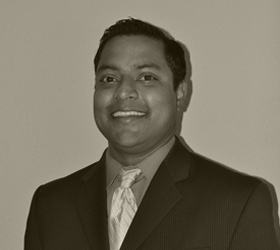
An effective teacher is one who draws out the natural talents and skills individuals possess through their personal experiences and mastery of their own realities. As an instructor, my role is to have students blend academic knowledge with these important exposures to become competent, innovative, and influential professionals.
Dr. Arnab Mukherjea has a specific passion for empowering at-risk populations to assume ownership of their own health prospects. He firmly believes that training and developing diverse and talented students will allow them to return to their communities to positively impact health. Dr. Mukherjea received his Doctor of Public Health (DrPH) degree in Applied Health Disparities Research, as well as a Master of Public Health (MPH) degree in Health & Social Behavior with a specialization in Multicultural Health. His Bachelor of Arts (BA) degree is in Molecular & Cell Biology, with a concentration in Neuroscience. All of his academic training occurred at the University of California, Berkeley.
Dr. Mukherjea has been involved in both undergraduate and graduate public health education in the University of California and California State University systems since 1998, teaching courses in community health, multicultural health, team building, epidemiology, as well as integration of theory and practice. In addition to teaching, he has worked in the non-profit sector, encompassing research and practice, with a particular focus on understanding and addressing preventable disparities among understudied Asian American populations. He has published and lectured on a number of issues related to health disparities in California and throughout the U.S. and has received numerous awards for his research in this area.